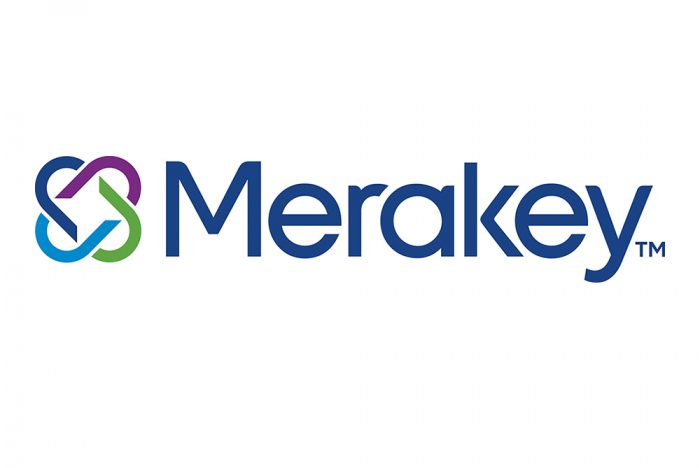A Review of the BH-HealthChoices Program as We Emerge from COVID
By Richard S. Edley, PhD, RCPA President/CEO
A lot has happened within the behavioral health Medicaid system over the last several years. The BH HealthChoices program, which started in the mid-90s, has certainly evolved over time – the implementation of supplemental services and reinvestment strategies, program expansion, and value-based payment structures, to name a few advances. It is a mature program that certainly has achieved the three original goals when the program was developed, which should be applauded:
- Increase access;
- Increase choice; and
- Stem the escalating health care cost curve.
As a carve-out model, Pennsylvania BH HealthChoices has and continues to be a model that reflects the unique government and local structure of counties, compared to states that operate on a state run behavioral health system. As noted in our most recent position paper, a program such as BH HealthChoices should continuously look to improve. While the role of RCPA is, at times, to challenge primary contractors and BH-MCOs when indicated to best represent providers and those they serve, we have also been consistent in our support of the program.
COVID certainly was the largest challenge to date for the whole human services system and to the BH HealthChoices program. RCPA worked with DHS/OMHSAS, the primary contractors (counties), and the BH managed care programs to implement a range of alternative payment mechanisms to keep community programs alive at that time as we collectively went into uncharted waters. The recognition by the primary contractors and BH-MCOs of the need to rethink funding to maintain the solvency of providers was a feat that was unprecedented. In comparison, this approach was not routinely implemented on the PH-MCO (physical health) side of HealthChoices. Further, RCPA supported the simultaneous rapid movement into telehealth at this time. If there is any silver lining during this period, we learned quite a bit about the utility of both these initiatives.
Then there was 2024, the year of MA “unwinding.” During COVID, many individuals joined Medicaid coverage while very few were ever removed. Under a federal directive, PA began to require re-enrollment of all persons on Medicaid during this year – leading to a disenrollment of individuals who perhaps could now receive coverage elsewhere (e.g., PENNIE) or did not qualify to remain on MA. No one argues that this should happen; but as with all other COVID and post-COVID initiatives, no one also quite knew how to predict what would actually be the result.
What did, in fact, occur is now well documented. OMHSAS and their contracted actuarial consultant simply missed their projections. They underestimated the number of people who would be removed from the rolls, and further underestimated the acuity of those that remained covered under BH HealthChoices. This double hit produced record losses for the programs and those primary contractors/BH-MCOs that are at financial risk for the programs. These losses were the result of the capitation payment being inadequate for the primary contractors while they were still required to support and pay providers for (the increased) medically indicated services.
It should be noted that there were similar losses of even larger numbers and proportion to the physical health system and those MCOs. The standard line from DHS and the governor’s office has been that those companies took the risk, and while it was a “bad” year, there have been good years (i.e., profit) and that is the nature of a risk agreement. This is perhaps true for the PH-MCOs that held funds during COVID, because the medical spend was greatly reduced due to members not seeking services. This same logic, however, has been attempted to be applied to the BH HealthChoices program.
Indeed, the BH managed care programs have built risk and contingency dollars over the years and that is what those dollars are there for when programs have losing years. The problem with applying the PH logic to the BH system goes back to the reimbursement strategy employed by the BH-MCOs and supported/encouraged by RCPA: alternative payments. Therefore, during COVID the BH-MCOs got as much of the dollars out as possible in advance to providers, to keep programs alive. These were not years of excess profit. Also, all primary contractors and BH-MCOs are capped at the amount of risk reserves that they can maintain, and have been capped at 3% max earnings in “good years.” These same organizations are on the hook for unlimited losses in the “bad” years. So the double-hit noted earlier really became a triple hit: high disenrollment, high remaining acuity, and the available dollars during COVID were spent.
What has also been well documented is the inadequacy of the mid-year capitation adjustment that was provided by OMHSAS to the primary contractors to “backfill” these losses. First, it was widely assumed that the adjustment would be for the full 12 months of 2024. Instead, it was only retroactive to July 2024, or six months. Second, the programs have estimated that across PA the capitation adjustment equated to about 17 cents on the deficit dollar. Based on the presentation of DHS that this was an unprecedented infusion of dollars into the BH system, many providers assumed this would equate to rate and program increases.
Moving into 2025, there is also some debate as to the adequacy of the increased capitation rates. Is the increase going to cover the utilization? Will utilization begin to come back to pre-COVID levels? These are clearly unknowns and RCPA has heard mixed reactions from the primary contractors and BH-MCOs. It is simply too soon to answer these questions. Based on this uncertainty, it is not surprising that many of the BH HealthChoices programs sent letters out to providers noting that they should not expect any program increases in 2025. While RCPA does not support that position, we clearly can understand it. What we would hope is that if 2025 begins to appear more positive financially, that these decisions can be revisited for the second half of the year. Several of the primary contractors have verified that this is their intent and have communicated this to providers.
At the same time, RCPA provider members have been increasingly vocal that in 2024 and into 2025, there appears to be increased scrutiny of the BH system by BH-MCOs, leading to an increase in denials of treatment requests. This feedback has been particularly apparent among SUD providers. RCPA took this very seriously, but also understood that such an assertion needed data, rather than relying solely on anecdotes. We did embark on our own data study and, due to the complexity, the results are still pending.
On April 24, 2025, however, OMHSAS preempted this effort and released a report to the Medical Assistance Advisory Committee (MAAC) on Denials, Grievances, and Complaints. The data does clearly reflect an increase in denials for some BH-MCOs in 2024, but not all. RCPA has to ask the question: what are the factors that led to this increased scrutiny and denials in some of the programs?
As with many issues, the answer to this question is again not so simple. While it is easy to make the correlation between financial losses and increased denials, BH-MCOs and primary contractors have noted several additional factors to consider, which RCPA also recognizes need to be discussed and understood:
- The increase in denials is not across every BH-MCO and every program. Therefore, large generalizations should be avoided and there needs to be a better understanding of what might be happening within the provider network and region(s) of those BH-MCOs that did show increases. The data was also published in raw numbers, not as a percentage of all service requests, or as denials/1000, to account for membership sizes.
- Could there be something related to the implementation of the ASAM criteria, which is mandated by law to be used for treatment decisions, on both the provider and BH-MCO that is driving this increase? BH-MCOs have asserted that there is a direct correlation between the increase in denials and the implementation of ASAM criteria. BH-MCOs have also noted that a small group of providers are driving the denial trends. 2024 was a learning period for all; therefore, could we project that denials will decrease when providers and BH-MCOs come to a better alignment?
- Is there an increase because we are comparing COVID years (before the MA unwinding) to 2024? What were denial levels before COVID? During the public health emergency, OMHSAS issued mandates requiring the approval of all admission and continued stay requests for specific SUD levels of care, regardless of whether MNC was met. This mandate ended in 2024, which accounts for some of the increase in denials. Were 2024 denial rates actually below historical norms?
Then again, could this report also be under-reflecting true denial rates? Several providers note that all of their grievances and appeals of denials are upheld. Therefore, it is not worth the significant administrative time to pursue this action, so alternatives are sought. This assertion, of course, is anecdotal and BH-MCOs do not agree that they have seen this trend. Since some of this may not be tracked in the data available, it highlights the importance of an ongoing discussion between all parties.
So what does this all mean? The evolution of the program, the COVID experience, and now the post-COVID data is important to understand. We don’t have all the answers, but this does set up an important set of discussions in the coming weeks/months:
- What does the denial data mean and how do we best understand it?
- Are there improvements we should be looking to for the BH program as it continues to evolve?
- What is the financial experience in 2025? Have utilization and expenditures leveled out?
- How do we ensure that what happened in 2024 is not repeated? Certainly it was a unique and difficult year, and while it might be a one-time event, is there anything learned from the experience? How do we ensure that the actuarial analysis moving forward takes into account any unique and recent utilization trends and data?
RCPA will continue to engage this dialogue with the primary contractors and BH-MCOs. But we also understand that the best way to approach these issues is ultimately in partnership with those organizations and OMHSAS.
In the coming weeks and months, we will continue to update the RCPA membership as we learn more. The BH-HC model has been and continues to be a success for the state, the counties, the providers, and most importantly, the members. As with past challenges, we are confident we can work with all stakeholders to navigate this current challenge and come out even better than we went into this period. We encourage providers to continue to bring to RCPA your experience in the coming months, so as to best inform the discussion and to continue to approve the program.

















